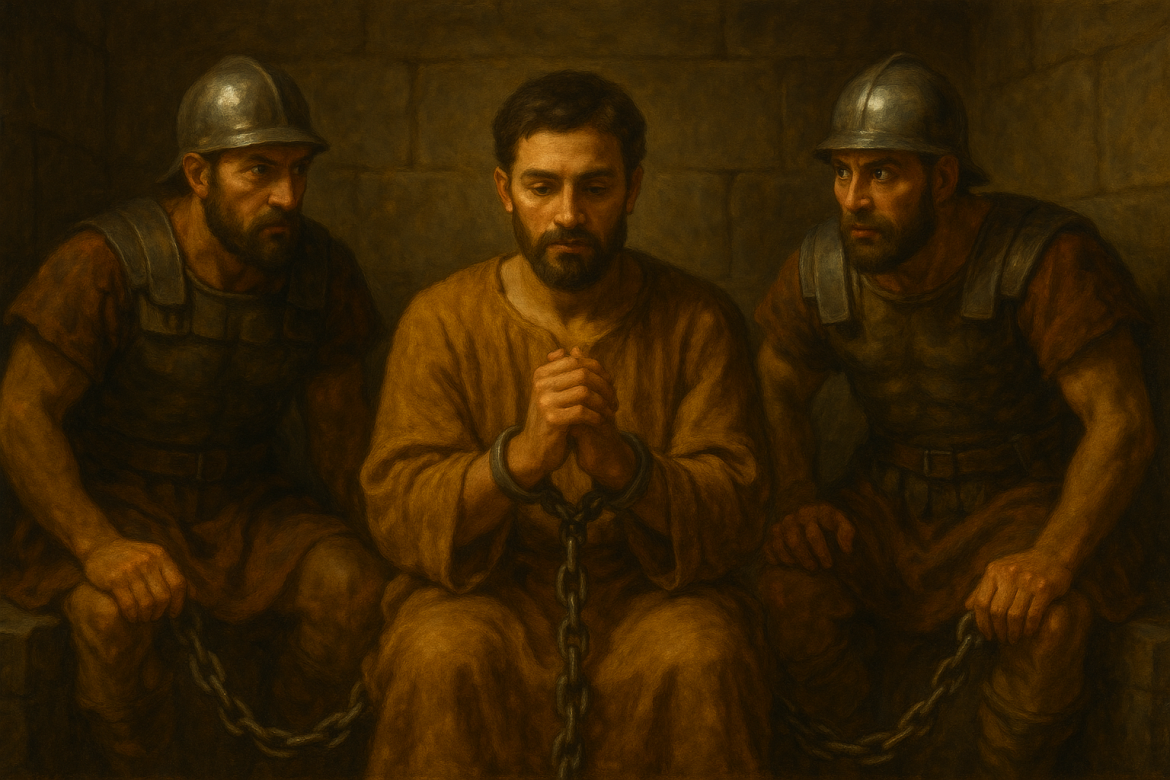Acts 12 presents a powerful narrative of divine intervention, contrasting the grim fate of James, the first apostle to be martyred, with the miraculous escape of Peter. The chapter reveals both the cruelty of Herod Agrippa I, the grandson of Herod the Great, and the unwavering faith of the early Christian community, whose prayers played a crucial role in Peter’s deliverance.
The Martyrdom of James: The chapter begins with the tragic death of James, the brother of John, who becomes the first apostle to be martyred. Herod Agrippa I, seeking to gain favor with the Jewish leaders, executes James by the sword. This event highlights the perilous environment in which the early church existed, where proclaiming the gospel could lead to persecution and death. The death of James is a sobering reminder that faith in Christ, while bringing eternal hope, does not exempt believers from suffering.
Peter’s Arrest and the Power of Prayer: Following James’s execution, Herod arrests Peter, intending to execute him after the Passover. The early church, however, responds with earnest prayer, gathering to intercede for Peter’s release. The emphasis on prayer in this narrative underscores the collective faith of the early Christians, who believed in the power of divine intervention even in the most dire circumstances.
The Miraculous Escape: In the night, as Peter sleeps between two soldiers, an angel of the Lord appears and miraculously frees him from his chains. The angel leads Peter past multiple guards and through the iron gate, which opens on its own. This escape defies human logic and security, illustrating that God’s power transcends earthly authority and circumstances. Peter, initially unsure if he is experiencing a vision, comes to realize the reality of his deliverance only after the angel departs.
Herod’s Downfall: The narrative shifts to Herod’s demise, following his failure to execute Peter. Herod leaves Jerusalem for Caesarea, where he meets with representatives from Tyre and Sidon. During a public address, the crowd blasphemously praises Herod, calling his voice “the voice of a god, not of a man.” Herod accepts this adulation, failing to give glory to God. As a result, an angel of the Lord strikes him down, and he dies a gruesome death, eaten by worms. Herod’s end serves as a stark warning against pride and the dangers of seeking human glory over divine reverence.
Conclusion: Acts 12 contrasts the sovereignty of God with the fleeting power of earthly rulers. While James’s martyrdom and Peter’s miraculous escape show that God’s plans are beyond human understanding, Herod’s downfall reminds us of the consequences of arrogance and impiety. This chapter encourages believers to trust in God’s plan, remain steadfast in prayer, and recognize that divine justice will ultimately prevail.

